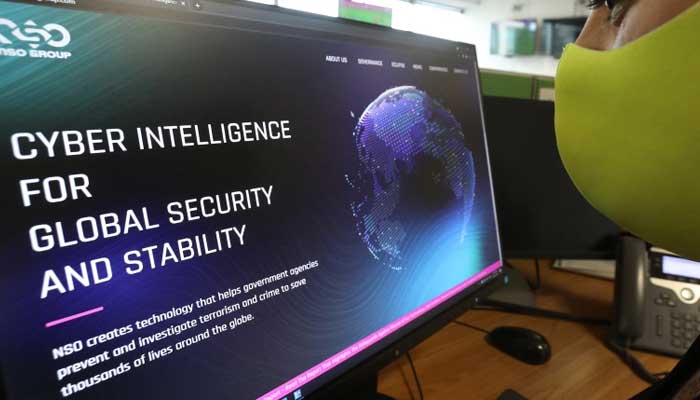France tests 'post-quantum' encryption for diplomatic messages
France has committed $157 million to quantum-resistant cryptography
PARIS: France's embassy in Washington has sent the diplomatic service's first message concealed using encryption designed to resist future quantum computers, President Emmanuel Macron said.
"Tomorrow, a sufficiently powerful quantum computer will be able to break all cryptographic algorithms and decode our messages," Macron wrote on Twitter.
"To counter this threat, developing post-quantum encryption technologies is a strategic concern. And that's what we're doing!"
Quantum computing is a fast-emerging technology that combines advances in scientific understanding of the subatomic world with leaps in information theory to solve mathematical problems that are impossible for today's conventional computers.
While traditional computers process information in bits that can be represented by 0 or 1, quantum computers use qubits, which can be a combination of both at the same time, allowing them to solve more complex problems.
Sent on Wednesday, France's first "post-quantum" encrypted message was relatively pedestrian, containing a memorandum on cooperation with the United States in the field.
In a statement, the foreign ministry in Paris said the encrypted communication was sent using technology from a startup called CryptoNext.
France has committed 150 million euros ($157 million) to quantum-resistant cryptography, the ministry added, as part of a wider 1.8-billion-euro push to develop all kinds of quantum technologies.
The move "is a precursor to changes in France's critical digital infrastructure," the statement said, promising a government "action plan" for "migration to post-quantum cryptography" in the first quarter of 2023.
The White House in May launched its own plan for both intelligence agencies and businesses to upgrade to post-quantum cryptography.
-
Shanghai Fusion ‘Artificial Sun’ achieves groundbreaking results with plasma control record
-
Polar vortex ‘exceptional’ disruption: Rare shift signals extreme February winter
-
Netherlands repatriates 3500-year-old Egyptian sculpture looted during Arab Spring
-
Archaeologists recreate 3,500-year-old Egyptian perfumes for modern museums
-
Smartphones in orbit? NASA’s Crew-12 and Artemis II missions to use latest mobile tech
-
Rare deep-sea discovery: ‘School bus-size’ phantom jellyfish spotted in Argentina
-
NASA eyes March moon mission launch following test run setbacks
-
February offers 8 must-see sky events including rare eclipse and planet parade












